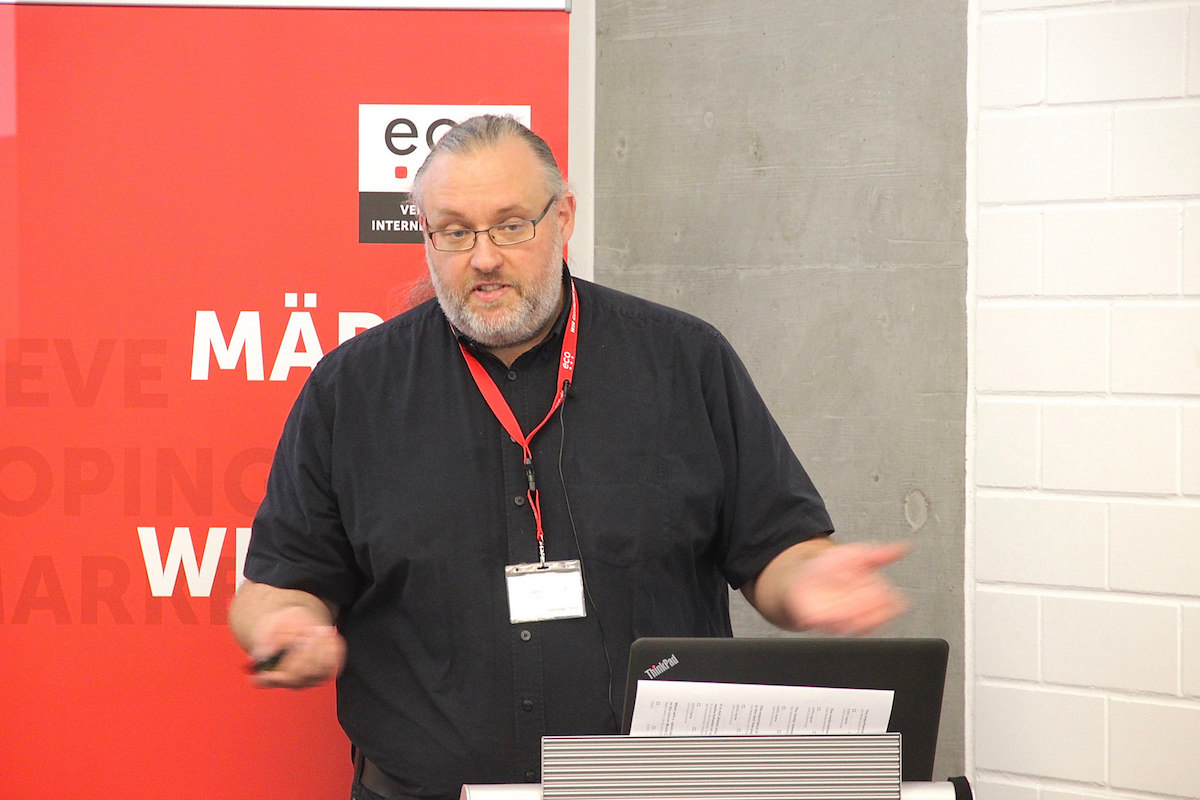
Report on the eco Competence Group Networks event “After the Euros and the Olympics
Frankfurt, Sept 15th 2016 – Usage of video online has increased massively over the past few years, and video is a major driver of traffic in global networks. Sport, in turn, is a driver of live streaming. As the trend towards consumption of live broadcasting via IP increases, so too do the demands on infrastructure and, not least, on broadband.
Sport footage is increasingly coming from very diverse sources using different formats and protocols, and end-users are consuming sport on a variety of connected devices, making interoperability a key issue in both the contribution and distribution side of live broadcasting.










What are the requirements and the challenges for the distribution of live video content via the Internet?
The second eco Competence Group Networks meeting brought together around 40 experts from the value chain of live streaming to discuss the range of perspectives, the challenges and future prospects.
Networks pioneer and eco Board Member Klaus Landefeld was joined on stage by Michael Martens, Managing Director of Riedel Networks GmbH & Co. KG, Dr. Thomas King, Chief Information Officer of DE-CIX, Dr. Stefan Lietsch, Chief Technology and Product Officer at zattoo.com, Dr. Philip Mackensen, Product Manager at MEDIA BROADCAST GmbH, Steve Bisenius, Vice President Sales Engineering from SES Astra, Martin Weber, European Sales Manager for Intinor Technology, Helmut Jung, Director Channel Management at Dimetis GmbH, Jürgen Sewczyk, Chairman Working Group Smart Media for the German TV Platform, and Arno Ernst, Business Development and Innovation at House of Research GmbH.
Klaus Landefeld opened the event by talking about his involvement in one of the first live streaming projects in the Netherlands and Germany, with the 24-hour streaming of the Dutch (1999) and German (2000) Big Brother shows.
Back then, 10,000 streams at 64 or 128 K was quite a feat. The industry has changed a lot in the meantime.
According to Landefeld, the DE-CIX Internet exchange in Frankfurt can attest to the massive increase in video-related traffic in recent years. Despite this, he demonstrated that there had been no visible increase in peak traffic as a result of the Olympics in 2016.
This suggests that live video is largely not routed through the public Internet, but rather through private interconnects.
One major challenge for live streaming currently is bandwidth, certainly in Germany. He commented on the ARD – German public broadcaster – being unable to offer continuous HD live streams because the bandwidth cannot be supplied by ISPs.
Although HD streaming for YouTube has more modest requirements for bandwidth requirements, 4K streaming requires a minimum recommended bandwidth of 15-25 Mbps, with 35 Mbps suggested as ideal.
In Germany, 30% of households currently spur Internet connections capable of supporting 15-25 Mbps, while another 30% could not order them even if the wanted to.
With this sobering figure for German broadband in mind, Landefeld turned to the future. UHD is on the horizon, and will require 120 Mbps – already possible and being used in Japan. On the same note, Japanese networks today already offer 8K HEVC broadcasting for sports and news events.
Here, he commented that sport is one of the main drivers for content for 8K. He finished with the forecast of average download speeds demanded by German customers of 170 Mbps in 2020, jumping to 400 Mbps by 2025.
The guest speakers at the eco event spoke from both the contribution and distribution sides of the live broadcasting industry, covering football, Formula 1, the Olympics, and ice hockey, among others.
They offered insight into network challenges and broadband requirements, information about the variety of sources of live footage, the forthcoming broadcasting formats, video compression formats, adaptive technologies, and hybrid solutions to meet the future broadband challenges.
They approached the topic from diverse viewpoints, looking at the challenges in negotiating with business partners and digging cable, through to end-user behavior and its impact on traffic and networks.
Für die neu gegründete Kompetenzgruppe Netze sind wir aktuell auf der Suche nach einem Leiter/-in. Wenn Sie als Führungskraft eines unserer Mitgliedsunternehmen ihre Expertise in diesem Bereich nach aussen tragen wollen, sprechen Sie uns gerne an: roland.broch@eco.de
